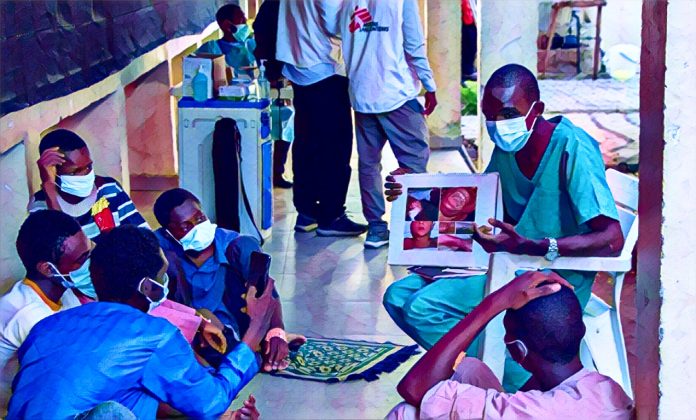Key Points
-
The MSF diphtheria intervention expands as cases surge.
-
Health centres are overwhelmed in multiple northern states.
-
The MSF diphtheria intervention stresses urgent vaccine gaps.
Médecins Sans Frontières is expanding its response to diphtheria in northern Nigeria because suspected cases are rising much faster than local health systems can handle.
Since August, the organisation has been working with state health ministries. They say that the rise in cases is making already-visible problems with treatment capacity, vaccination coverage, and access to lifesaving antitoxin supplies worse.
In the last three months, Disease Surveillance and Notification Officers have reported hundreds of suspected cases in Borno, Kano, and Bauchi. This has pushed treatment centres past their limits and led to the opening of emergency wards. MSF teams say that many facilities have started to give the sickest patients the most important care as the number of patients keeps going up.
Treatment centres are being overwhelmed by rising infections
The Nigeria Centre for Disease Control and Prevention says that between May 2022 and May 2025, Nigeria had 43,743 suspected diphtheria cases in 37 states.
Corynebacterium diphtheriae, which makes toxins, is the main cause of the disease. It often looks like a bad respiratory illness and can cause heart problems in about a quarter of cases. MSF says that diphtheria can kill up to half of the people who get it if they don’t get treatment.
MSF Medical Coordinator Dr. Halarou Assoumana said, “Diphtheria is still dangerous even with access to care.” “Five percent of people still die in some situations. For survival, it is very important to get an early diagnosis, have easy access to antitoxin, and have a lot of people vaccinated.
Systemic gaps make the outbreak worse
MSF says that the outbreak is getting worse because immunisation rates are low, there aren’t enough trained health workers, and diphtheria antitoxin (DAT), a treatment that is still hard to find in many areas, is hard to find.
The group also said that better surveillance and data reporting systems will be necessary to find transmission sooner and keep hospitals from getting too full.
Between August 21 and November 9, the Diphtheria Treatment Centre at Abubakar Tafawa-Balewa University Teaching Hospital in Bauchi State took in 295 patients. Because of the surge, officials had to open another treatment unit at a specialist hospital to handle the extra patients and cut down on wait times.
Kano has the worst surge
Kano State has been hit even harder. In October, MSF teams went back to help there, months after finishing a 15-month mission that ended in April 2024. More than 2,300 patients had to go to the hospital by early November.
More than 400 of them had to go between October 6 and November 2. MSF is now only taking care of the most serious patients because the Infectious Disease Hospital is full. They are sending the rest of the patients to Aminu Kano Teaching Hospital for more treatment.
MSF says it will keep expanding its operations where they are needed. It warns that the outbreak could get worse in the coming months if routine vaccinations and a steady supply of antitoxin are not improved.



